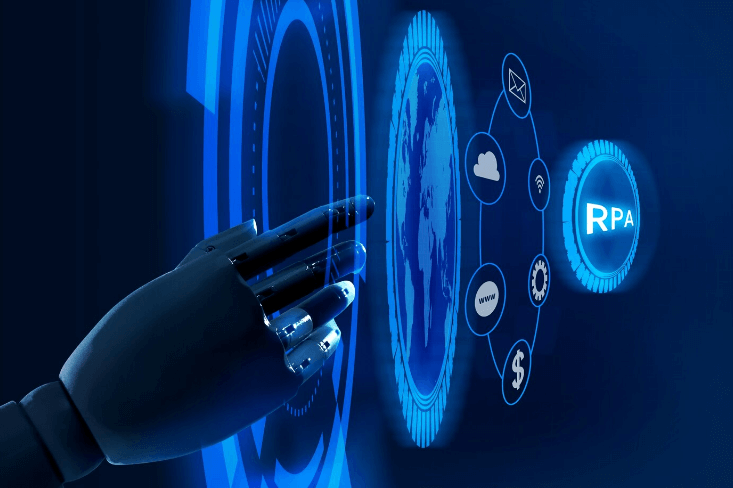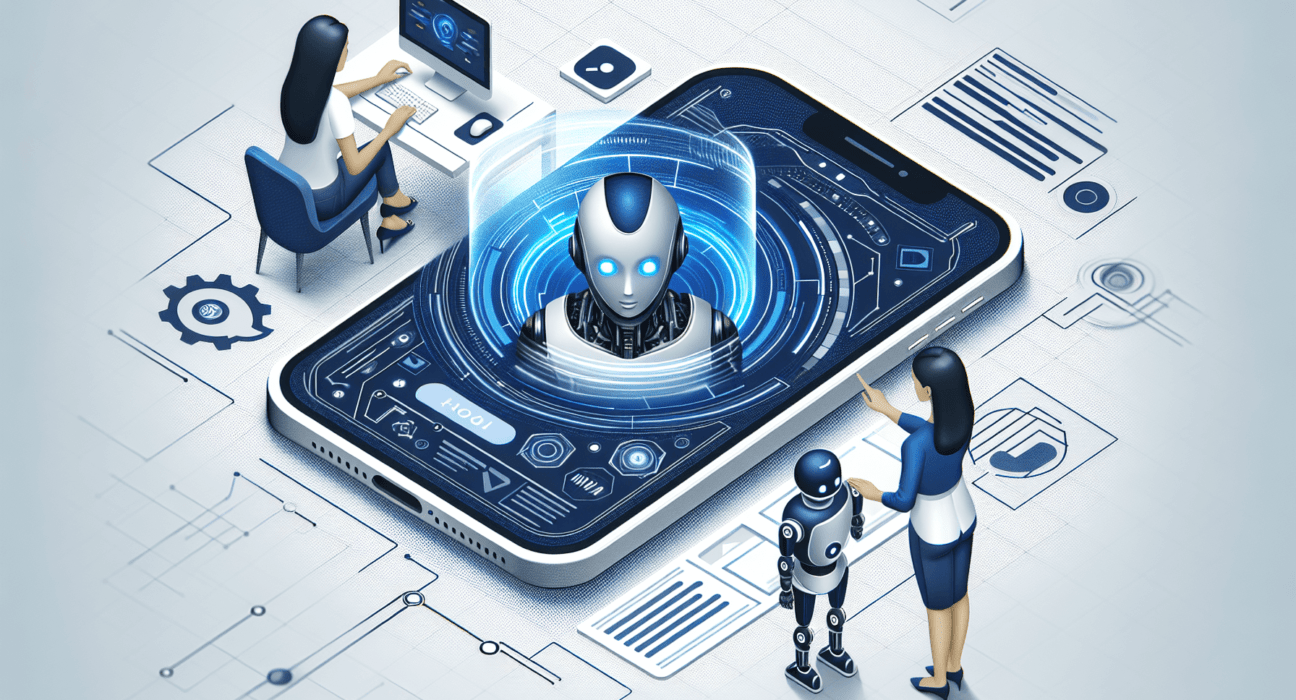Table of Contents
AI chatbots in customer service
Artificial Intelligence (AI) chatbots have rapidly evolved over the past few years, becoming a cornerstone in customer service across industries. These sophisticated programs, now recognized as intelligent virtual assistants, are designed to simulate human conversation and perform various tasks, from answering simple queries to resolving complex customer issues. The implementation of AI chatbots in customer service has led to significant improvements in response times and customer satisfaction. As chatbot technology advancements continue to accelerate, the capabilities of artificial intelligence customer support systems expand, prompting a reimagining of their role in business operations. This article explores the future of automated customer interactions, delving into the evolution of AI chatbots, the current landscape, and their potential to transform customer service as we know it.
Evolution and Advancements in AI Chatbots
The journey of AI chatbots in customer service from rudimentary programs to sophisticated conversational agents has been marked by significant technological milestones. Understanding their evolution and advancements provides insight into their growing role in artificial intelligence customer support. Chatbot technology advancements have paved the way for more natural and context-aware interactions, shaping the future of automated customer interactions. As intelligent virtual assistants become increasingly adept at handling complex queries and providing personalized solutions, they are revolutionizing the customer service landscape. These developments not only enhance efficiency but also offer a glimpse into a future where AI-driven support systems seamlessly blend with human agents to deliver unparalleled customer experiences.

Initial Developments in AI Chatbots
The earliest AI chatbots, such as ELIZA developed in the 1960s, were simple rule-based programs capable of mimicking human conversation to a limited extent. These chatbots relied heavily on predefined scripts and pattern matching, restricting their capabilities and making their interactions seem mechanical and non-intuitive.
However, these initial developments laid the groundwork for future advancements. As computational power increased and natural language processing (NLP) technologies matured, chatbots began to incorporate more sophisticated algorithms, enabling more coherent and contextually relevant interactions with users.
Recent Innovations and Improvements
In recent years, AI-driven chatbots have seen a surge in innovation, thanks to developments in machine learning, NLP, and deep learning. Modern chatbots, such as those powered by OpenAI’s GPT-3 and Google’s BERT, can understand and generate human-like text, making conversations more fluid and less distinguishable from those with human agents.
These improvements have also enabled chatbots to handle more complex tasks, such as providing personalized recommendations, performing transactional activities, and even understanding and responding to emotional cues. Innovations like voice recognition and multilingual support further increase their versatility and accessibility.
Future Prospects and Expectations
The future of AI chatbots looks promising, with expectations that they will become even more intelligent, autonomous, and capable. The integration of AI chatbots with other advanced technologies like augmented reality (AR), virtual reality (VR), and the Internet of Things (IoT) could open new possibilities for immersive and seamless customer experiences.
Additionally, advancements in AI ethics and transparency are anticipated to address current limitations, such as bias and lack of interpretability. This will not only enhance the performance of chatbots but also build greater trust and acceptance among users, solidifying their role in future customer service paradigms.
AI Chatbots in the Current Customer Service Landscape
AI chatbots in customer service are becoming increasingly prevalent in today’s business landscape. This section explores their widespread applications, measures of their efficiency, and the strengths and limitations they present. As artificial intelligence customer support continues to evolve, we’re witnessing rapid chatbot technology advancements that are reshaping how businesses interact with their clients. The future of automated customer interactions looks promising, with intelligent virtual assistants capable of handling complex queries and providing personalized experiences. These developments are not only improving response times and availability but also allowing human agents to focus on more intricate issues, ultimately enhancing overall customer satisfaction and operational efficiency.

Prevalent Uses and Applications of AI Chatbots
AI chatbots are now commonly deployed across various sectors, including retail, banking, healthcare, and telecommunications. They are employed for a range of tasks such as answering frequently asked questions, providing product information, processing orders, and scheduling appointments. Their ability to handle repetitive and time-consuming tasks allows human agents to focus on more complex issues, thereby enhancing overall productivity.
Moreover, AI chatbots are instrumental in gathering customer feedback and analyzing data to inform strategic decisions. Their presence on platforms like social media, websites, and mobile apps ensures that businesses maintain constant engagement with their customers, fostering greater loyalty and satisfaction.
Efficiency and Effectiveness of AI Chatbots
The efficiency of AI chatbots is one of their most significant advantages. They can handle multiple interactions simultaneously, reducing wait times and improving response rates. This capability is particularly beneficial during peak times, where the demand for customer support is high.
Effectiveness is also a key metric, as AI chatbots are designed to resolve issues quickly and accurately. Advanced AI chatbots can learn from past interactions, continuously improving their performance and the overall customer experience. Efficiency and effectiveness combined make AI chatbots a valuable asset for enhancing customer service operations.
Strengths and Limitations of Current AI Chatbots
While AI chatbots offer numerous strengths, including 24/7 availability, scalability, and cost savings, they are not without limitations. One of the primary constraints is their inability to understand nuanced human emotions fully, which can sometimes lead to unsatisfactory customer interactions.
Additionally, while chatbots excel at handling straightforward queries, they may struggle with more complex or nuanced issues that require human judgment and empathy. Current AI chatbots also face challenges with language comprehension and cultural context, which can affect the quality of interactions in diverse markets.
Predicted Future Scenarios for AI Chatbots
Looking ahead, AI chatbots in customer service are expected to undergo transformative changes that will further enhance their capabilities and applications. This section discusses these predicted future scenarios and their potential impact on customer support. As artificial intelligence customer support continues to evolve, we anticipate significant chatbot technology advancements that will revolutionize the way businesses interact with their clients. The future of automated customer interactions is likely to include more sophisticated intelligent virtual assistants capable of handling complex queries and providing personalized experiences. These developments will not only improve efficiency but also redefine the role of human agents in customer service, creating a symbiotic relationship between AI and human expertise.

Integration of AI Chatbots with Advanced Technologies
The integration of AI chatbots with advanced technologies such as AR, VR, and IoT is anticipated to revolutionize customer service. For example, chatbots equipped with AR and VR capabilities could provide virtual assistance and product demonstrations, creating more immersive and engaging customer experiences.
Similarly, IoT integration could enable AI chatbots to interact with various smart devices, offering seamless support and troubleshooting for connected products. These advancements will not only enhance the functionality of chatbots but also provide a more cohesive and intuitive customer service experience.
Transforming Customer Interactions
Future AI chatbots are expected to transform customer interactions by becoming more proactive and personalized. With advancements in machine learning and predictive analytics, chatbots could anticipate customer needs and offer solutions before issues arise, significantly improving customer satisfaction and loyalty.
This transformation also involves a shift towards more natural and human-like conversations. Enhanced NLP and contextual understanding will enable chatbots to engage in more meaningful and relevant interactions, further blurring the lines between human and machine communication.
Revolutionizing Problem-Solving and Support
AI chatbots of the future are poised to revolutionize problem-solving and support by leveraging advanced AI capabilities. They could offer more accurate and efficient solutions by analyzing vast amounts of data and learning from each interaction. This will enable them to resolve even complex issues quickly and effectively.
Moreover, the integration of AI-powered diagnostics and predictive maintenance capabilities could allow chatbots to identify potential problems before they occur, offering preemptive support and reducing downtime. Such advancements will not only enhance the problem-solving capabilities of chatbots but also lead to a more proactive and reliable customer service experience.
AI Chatbots and the Future of Customer Service
The evolving capabilities of AI chatbots in customer service are set to redefine the future of customer support. This section explores how chatbot technology advancements will lead to enhanced personalization, round-the-clock support, and efficient management of high volumes of customer interactions. As artificial intelligence customer support systems become more sophisticated, we can expect to see a significant shift in the way businesses handle customer inquiries. The future of automated customer interactions promises to deliver more natural, context-aware conversations, while intelligent virtual assistants will be capable of handling complex queries and even predicting customer needs before they arise. These innovations will not only improve customer satisfaction but also streamline operations for businesses across various industries.

Enhanced Personalization and Customer Understanding
Future AI chatbots are expected to offer unprecedented levels of personalization by leveraging advanced data analytics and machine learning. By analyzing customer data and behavior, chatbots can provide tailored recommendations and solutions, enhancing the overall customer experience.
Furthermore, advancements in AI will enable chatbots to understand and respond to individual customer preferences and emotions more accurately. This deeper level of understanding will allow businesses to build stronger relationships with their customers, fostering greater loyalty and satisfaction.
24/7 Support and Instantaneous Responses
One of the most significant advantages of AI chatbots is their ability to provide 24/7 support. As these chatbots become more advanced, their ability to handle complex queries and provide instantaneous responses will further improve, ensuring that customers receive timely and efficient support at any time of day.
This constant availability is particularly beneficial for global businesses, as it allows them to serve customers across different time zones effectively. The ability to provide continuous support can also significantly reduce waiting times, leading to higher levels of customer satisfaction and a more positive overall experience.
Managing High Volumes of Customer Interactions
AI chatbots are well-equipped to manage high volumes of customer interactions, making them an invaluable tool for businesses during peak times or crises. Their ability to handle multiple conversations simultaneously ensures that no customer query goes unanswered, regardless of the volume of interactions.
As these chatbots become more sophisticated, their ability to triage and prioritize issues based on urgency and complexity will improve, ensuring that critical issues are addressed promptly. This efficient management of customer interactions can lead to quicker resolutions and a more streamlined customer service process.
The Potential Impacts and Implications
The rise of AI chatbots in customer service carries significant potential impacts and implications for businesses and customers alike. This section examines how these chatbots can influence business performance, customer experience, and the challenges and best practices associated with their adoption. As artificial intelligence customer support continues to evolve, we’re witnessing rapid chatbot technology advancements that are reshaping the landscape of customer interactions. The future of automated customer interactions promises increased efficiency and personalization, with intelligent virtual assistants becoming more sophisticated in understanding and addressing customer needs. These developments are not only transforming how businesses approach customer service but also setting new standards for responsiveness and engagement in the digital age.

Business Performance and Competitive Advantage
AI chatbots can significantly enhance business performance by increasing operational efficiency and reducing costs. By automating routine tasks and handling a large volume of interactions, chatbots free up human agents to focus on more strategic and value-added activities.
Additionally, the ability to provide quick and accurate support can improve customer satisfaction and loyalty, giving businesses a competitive edge. Companies that effectively leverage AI chatbots can differentiate themselves in the market by offering superior customer service and building stronger customer relationships.
Customer Experience and Satisfaction
The deployment of AI chatbots can greatly enhance the customer experience by providing timely and efficient support. Customers appreciate quick resolutions to their queries, and chatbots’ ability to offer instant responses meets this expectation.
Moreover, the personalized and proactive support provided by advanced chatbots can lead to higher levels of customer satisfaction. By understanding and anticipating customer needs, AI chatbots can offer a more engaging and relevant experience, fostering greater customer loyalty and trust.
Potential Challenges and Best Practices
Despite their many benefits, the adoption of AI chatbots is not without challenges. Issues such as data privacy, security, and ethical considerations must be addressed to ensure that chatbots are used responsibly and effectively. Ensuring that chatbots are free from bias and can handle sensitive information securely is crucial for maintaining customer trust.
Best practices for deploying AI chatbots include continuous monitoring and improvement, integration with other customer service channels, and providing a seamless handoff to human agents when necessary. By following these practices, businesses can maximize the benefits of AI chatbots while minimizing potential risks.
As AI chatbots in customer service continue to evolve and improve, their role is set to become even more significant. From enhancing personalization and providing 24/7 artificial intelligence customer support to revolutionizing problem-solving and improving business performance, the potential of chatbot technology advancements is vast. The future of automated customer interactions promises to transform how businesses engage with their clients, offering more efficient and responsive solutions. However, it is essential to address challenges and adhere to best practices to fully harness the capabilities of intelligent virtual assistants and ensure a positive customer experience. The future of customer service lies in the seamless integration of these AI-powered tools, creating a more efficient, responsive, and personalized service landscape that can adapt to evolving customer needs and expectations.






